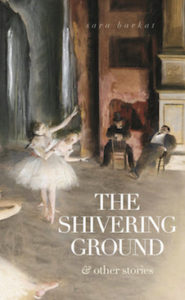< Return to Kahlil Gibran Poems
The Blessed City
In my youth I was told that in a certain city every one lived according to the Scriptures.
And I said, “I will seek that city and the blessedness thereof.” And it was far. And I made great provision for my journey. And after forty days I beheld the city and on the forty-first day I entered into it.
And lo! the whole company of the inhabitants had each but a single eye and but one hand. And I was astonished and said to myself, “Shall they of this so holy city have but one eye and one hand?”
Then I saw that they too were astonished, for they were marvelling greatly at my two hands and my two eyes. And as they were speaking together I inquired of them saying, “Is this indeed the Blessed City, where each man lives according to the Scriptures?” And they said, “Yes, this is that city.”
“And what,” said I, “hath befallen you, and where are your right eyes and your right hands?”
And all the people were moved. And they said, “Come thou and see.”
And they took me to the temple in the midst of the city, and in the temple I saw a heap of hands and eyes. All withered. Then said I, “Alas! what conqueror hath committed this cruelty upon you?”
And there went a murmur amongst them. And one of their elders stood forth and said, “This doing is of ourselves. God hath made us conquerors over the evil that was in us.”
And he led me to a high altar, and all the people followed. And he showed me above the altar an inscription graven, and I read:
“If thy right eye offend thee, pluck it out and cast it from thee; for it is profitable for thee that one of thy members should perish, and not that the whole body should be cast into hell. And if thy right hand offend thee, cut it off and cast it from thee; for it is profitable for thee that one of thy members should perish, and not that thy whole body should be cast into hell.”
Then I understood. And I turned about to all the people and cried, “Hath no man or woman among you two eyes or two hands?”
And they answered me saying, “No, not one. There is none whole save such as are yet too young to read the Scripture and to understand its commandment.”
And when we had come out of the temple, I straightway left that Blessed City; for I was not too young, and I could read the scripture.
—Kahlil Gibran
About Kahlil Gibran
Khalil Gibran (جبران خليل جبران) was a writer, visual artist, and poet with a prolific collection of work. He was born in 1883 in a village in the Mount Lebanon Mutasarrifate and in 1893 moved with his family to the United States where he enrolled in school in Boston, then went back home when he was fifteen to enroll in the Collège de la Sagesse. In 1902 he came back to Boston, and two years later his artwork was displayed for the first time. In 1905 he published his first book, and after that studied art in Paris for three years. Gibran wrote books in both Arabic and English, including poems, plays, fables, short stories, and political essays.
His cousin, Kahlil G. Gibran, a sculptor, described his work in this way. “Ignoring much of the traditional vocabulary and form of classical Arabic, he began to develop a style which reflected the ordinary language he had heard as a child in Besharri and to which he was still exposed in the South End [of Boston]. This use of the colloquial was more a product of his isolation than of a specific intent, but it appealed to thousands of Arab immigrants.” (Robin Waterfield, 1998) He was inspired by the King James Bible, the works of William Blake, whose drawings were in Gibran’s opinion “so far the profoundest things done in English.” (Joseph Ghougassian, 1973) Other inspirations included Francis Marrash (فرنسيس بن فتح الله بن نصر الله مرّاش), Walt Whitman, and Friedrich Nietzsche.

“Self Portrait and Muse” by Khalil Gibran
With visual art Gibran worked in oils, pencil, ink, watercolor, and gouache, and created more than seven hundred pieces of visual art. His work is featured in a number of museums, and his work The Prophet has been translated into more than 100 languages and has never been out of print, becoming popular in the American counterculture and New Age movement. The book was admired by Elvis Presley, John Lennon, Johnny Cash, David Bowie, Gilad Hochman (גילעד הוכמן) and Dana Al Fardan. Gibran has museums, memorials, schools, a garden, and a crater on Mercury named after him.
I hope you enjoyed The Blessed City by Kahlil Gibran! If you liked The Blessed City by Kahlil Gibran, you might enjoy more poems by him below.
< Return to Khalil Gibran Poems
“Stunning…from start to finish. Barkat is a fierce new voice.”

